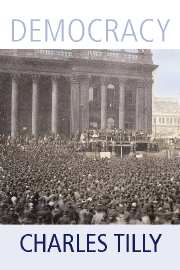2 - Democracy in History
Published online by Cambridge University Press: 05 June 2012
Summary
As Homer told us long ago, violence visibly bathed the lives and imaginations of citizens in classical Greece. My onetime collaborator, the irrepressibly witty political scientist Samuel Finer, phrased it this way: “Competitive, acquisitive, envious, violent, quarrelsome, greedy, quick, intelligent, ingenious – the Greeks had all the defects of their qualities. They were troublesome subjects, fractious citizens, and arrogant and exacting masters” (Finer 1997, I: 326). Among other forms of violence, the region's city-states warred repeatedly against one another.
In 431 BCE, nevertheless, a delegation went from Sparta to Athens in the name of peace. All the Athenians needed to do to avoid war, the Spartan delegates declared, was to stop interfering militarily and economically with Sparta's allies in the region. Athens' citizens held a general assembly to debate their response to Sparta's challenge. Advocates both of immediate war and of peacemaking concessions spoke to the assembly. But Pericles, son of Xanthippus, carried the day. Pericles (rightly thinking that in case of war the Spartans would invade Athenian territory by land) recommended preparation for a naval war and reinforcement of the city's defenses, but no actual military action until and unless the Spartans attacked.
- Type
- Chapter
- Information
- Democracy , pp. 25 - 50Publisher: Cambridge University PressPrint publication year: 2007



